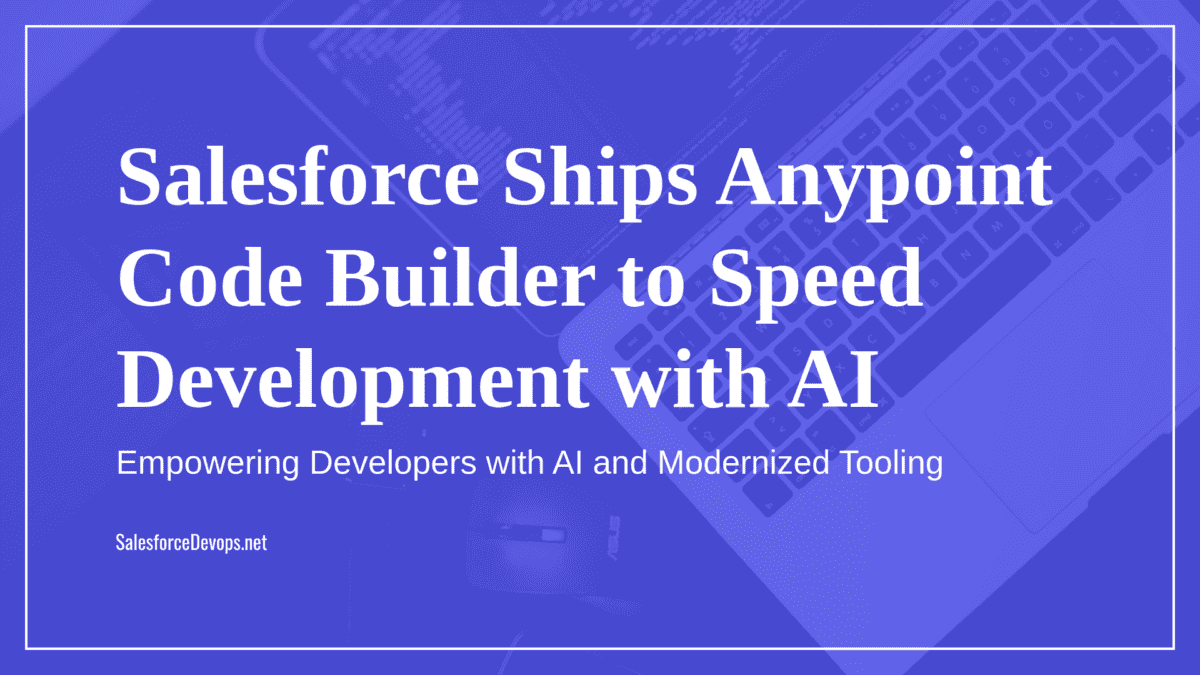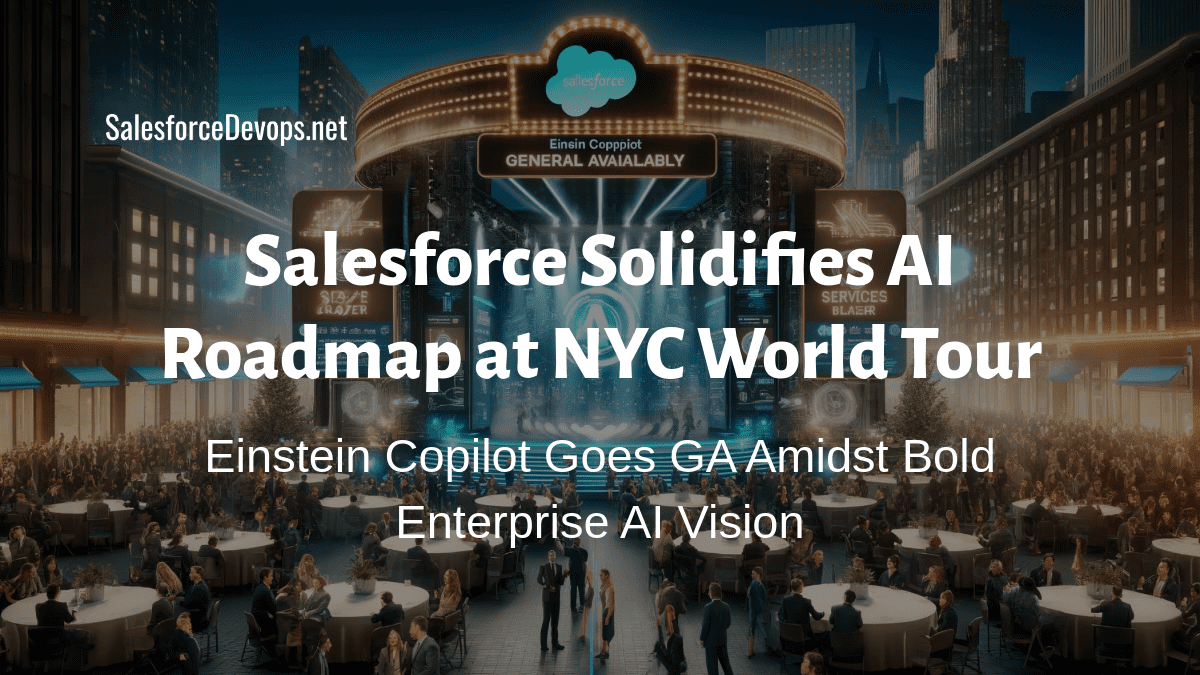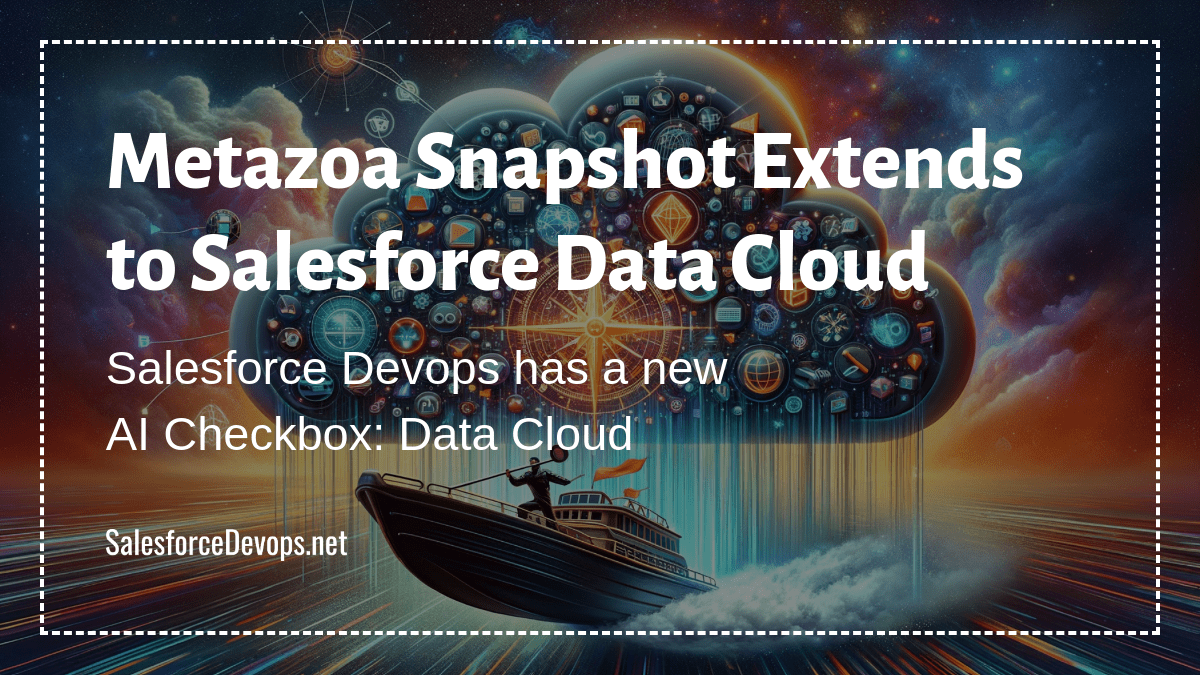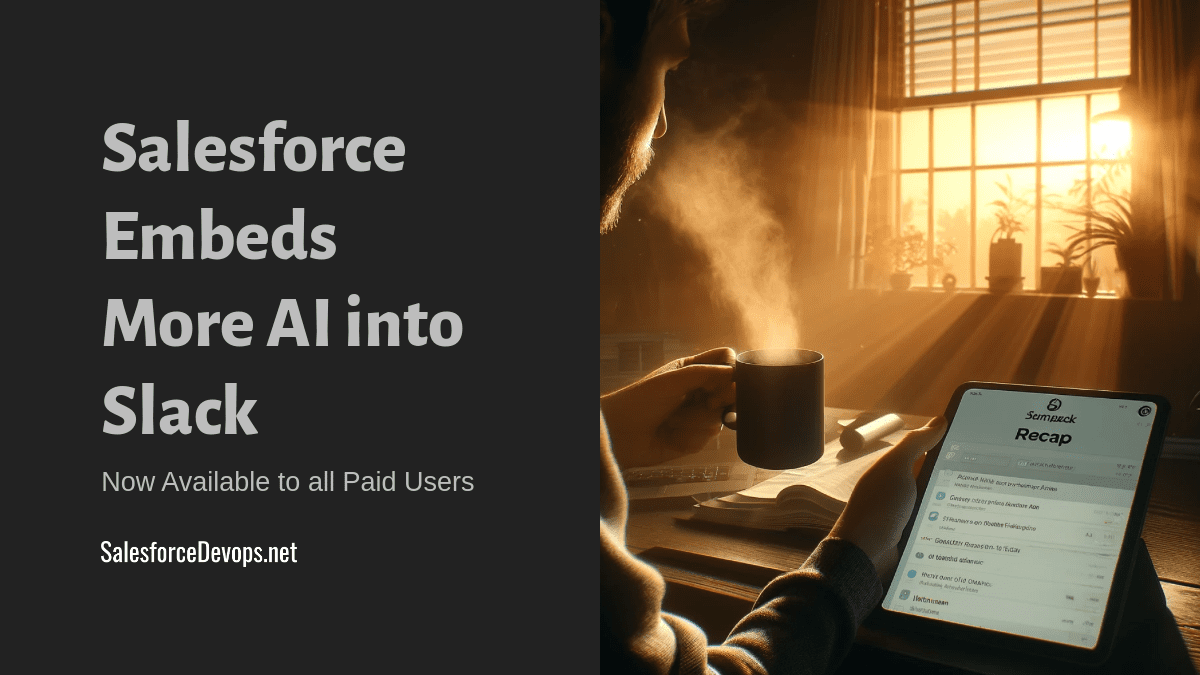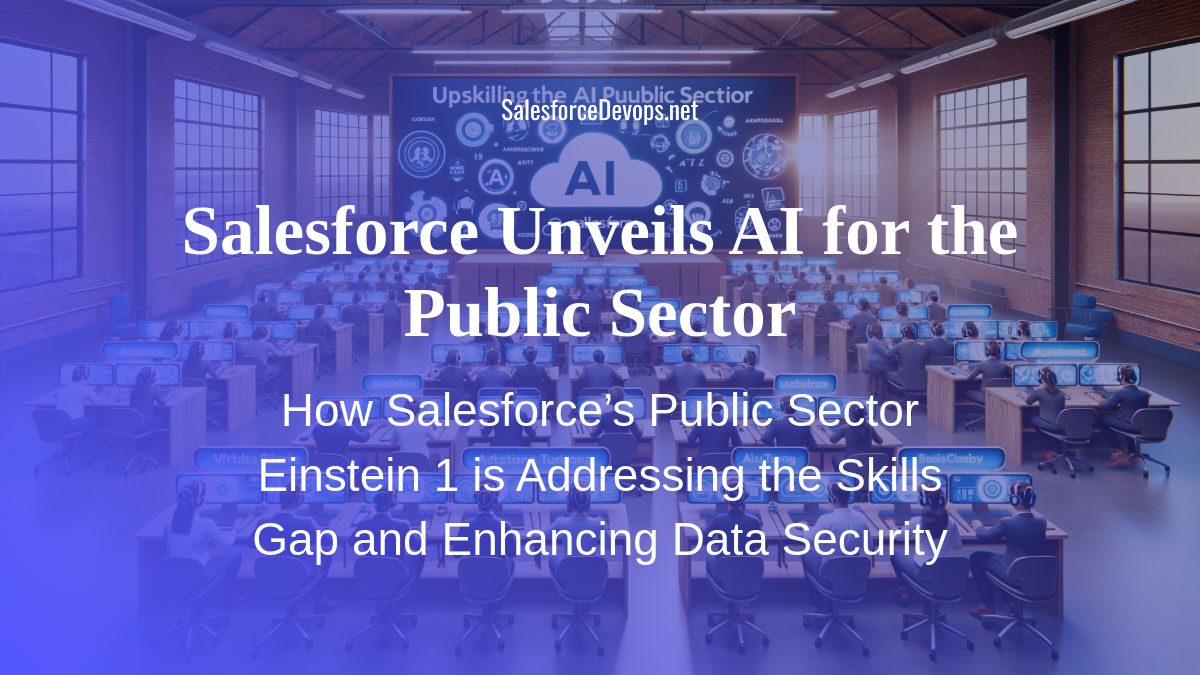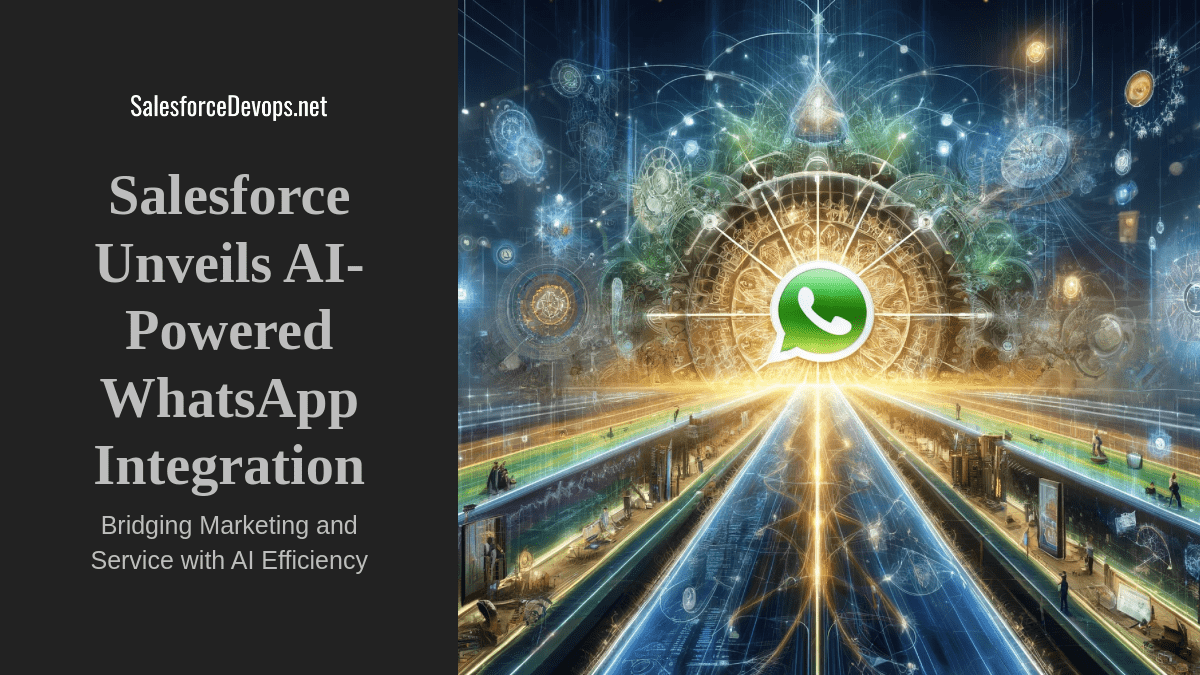Salesforce Ships Anypoint Code Builder to Speed Development with AI
Salesforce today announced general availability of Anypoint Code Builder, an integrated development environment (IDE) based on Microsoft VS Code that leverages AI to accelerate API and integration development. This marks a major upgrade for MuleSoft’s aging Eclipse-based tooling.
With digital transformation still topping enterprise priority lists post-pandemic, demand for integration platforms like Anypoint remains high. MuleSoft has been a surprise revenue winner for Salesforce, indicating strong market appetite.
Anypoint Code Builder aims to boost developer productivity by providing modern VS Code-based tooling. Key features include AI-assisted coding, extension ecosystem interoperability, and flexible deployment options.
Table of contents
Why Anypoint Code Builder Matters
The new IDE seeks to address two pressing pain points:
Legacy Tooling Migration
Anypoint developers have lacked access to modern developer tools that are now commonplace across the Salesforce ecosystem. Moving from the outdated Eclipse framework to Visual Studio Code finally brings MuleSoft up to speed.
Integration Challenges
With businesses relying on ever more applications and data systems, integration challenges abound. Anypoint Code Builder provides AI-powered assistance to streamline connecting these disparate technologies.
“MuleSoft’s Anypoint Code Builder modernizes our core integration tooling with the power of AI and a new Visual Studio Code-based foundation,” said Param Kahlon, EVP Automation & Integration at Salesforce. “This empowers developers to build integrations and APIs faster in their preferred environment,” added Kahlon, who recently joined Salesforce after extensive stints at UiPath and Microsoft.
AnyPoint Code Builder Key Capabilities
Key features of Anypoint Code Builder include:
- AI Code Generation – Einstein for Anypoint Code Builder (in pilot) lets developers use natural language prompts to generate code snippets and integration flows more quickly.
- Robust Extension Ecosystem – Access to VS Code’s thriving third-party extension ecosystem facilitates connecting diverse apps and services.
- Flexible Deployment – Developers can install the desktop IDE locally or use the cloud-based browser IDE for added flexibility.
- Industry Accelerators – Pre-built connectors and templates speed integration for common industry use cases like healthcare, banking, and retail.
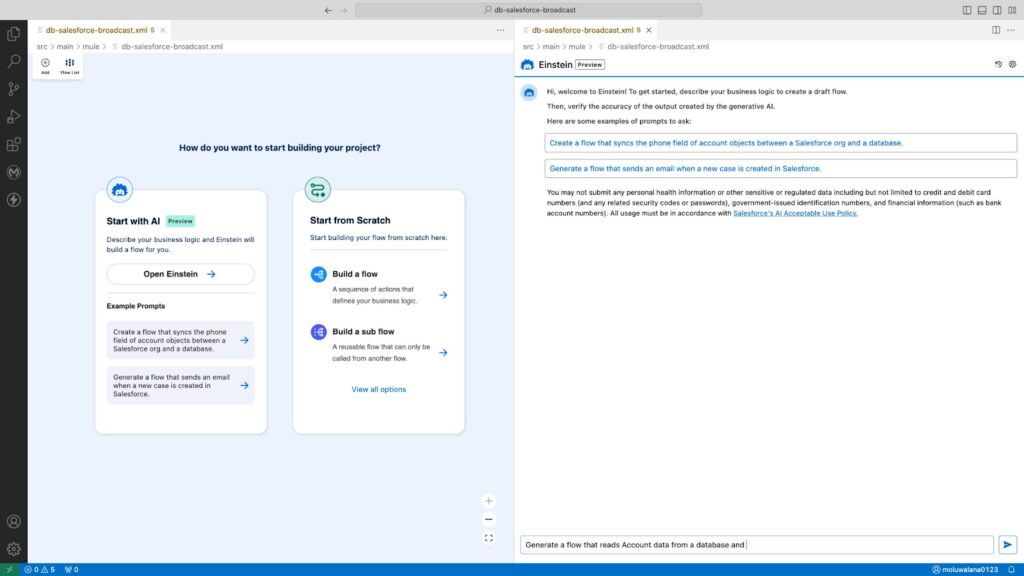
The Future of AI in Software Engineering
While AI-assisted coding tools hold enormous potential to enhance developer productivity, their implications for the future of software engineering remain uncertain.
Some futurists predict advanced AI could one day automate up to 90% of coding work, massively disrupting the tech industry job market. However, that extreme scenario seems distant.
A more balanced outlook sees AI as augmenting rather than replacing developers. Kahlon suggested integration engineers will shift focus from tedious coding tasks to higher-value business logic optimization. AI will eliminate much of the “donkey work” involved in connecting enterprise applications and data sources.
This future promises to create huge gains in developer productivity and software quality. But this future will also require revamped skills and processes to fully leverage AI pair programmers. University computer science programs must adapt curricula to tomorrow’s tech landscape.
While “AI programmers” seem poised for rapid advances, they likely won’t make human programmers obsolete. Demand for software integration projects will only grow as companies pursue digital transformation. AI will unlock efficiency gains to help address that need – complementing developers rather than conquering their jobs.
Salesforce AI Position Remains Strong
This announcement reinforces what makes Salesforce such a strong contender in the AI enablement race. While their in-house AI offerings remain decidedly last generation, more customers are relying on Salesforce’s system integration capabilities to build digital transformations. It turns out that having extensive metadata capabilties, along with fully-fledged data security features, is just what the doctor ordered for AI enablement too.
Good AI integration relies on so many of the good IT practices embodied by the Anypoint platform. These include metadata catalogs based on API specifications, support for composability, and advanced documentation methods. These are the repositories that are essential for the future of system integration of executive thinking partners and other AI agents.
Bottom line, Anypoint Code Builder delivers modern, flexible development capabilities by transitioning from Eclipse to Visual Studio Code. The new IDE finally brings MuleSoft’s dated tooling up to par with the rest of the Salesforce ecosystem. While not yet matching expectations set by tools like GitHub Copilot, Code Builder marks major progress for MuleSoft developers that still allows users to continue to use GitHub Copilot other generative coding tools in the most popular IDE.
